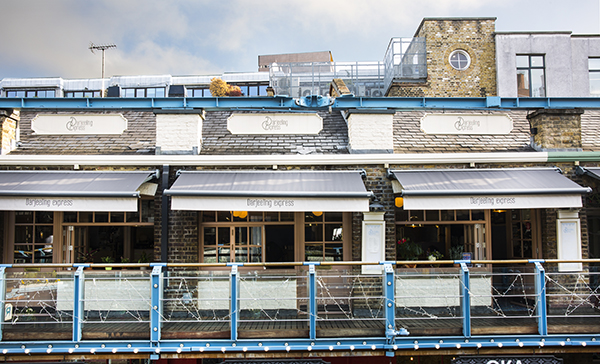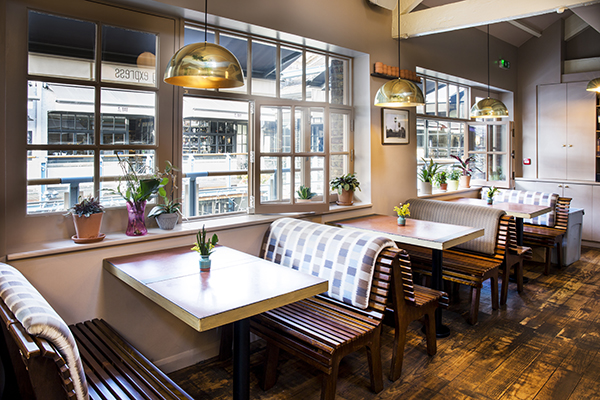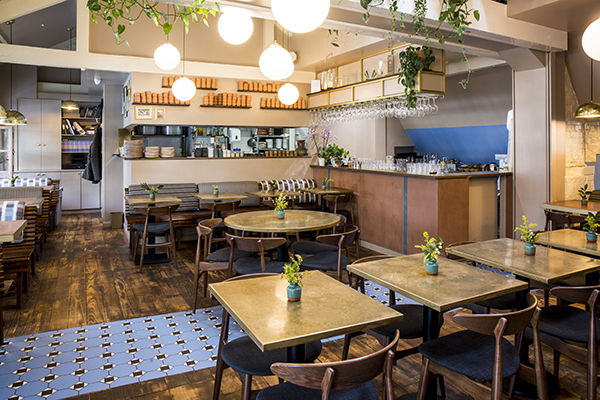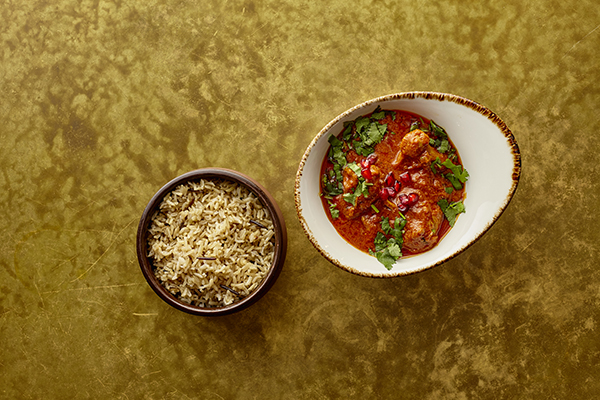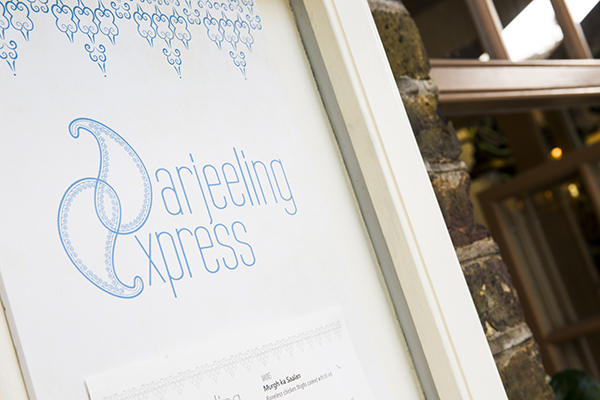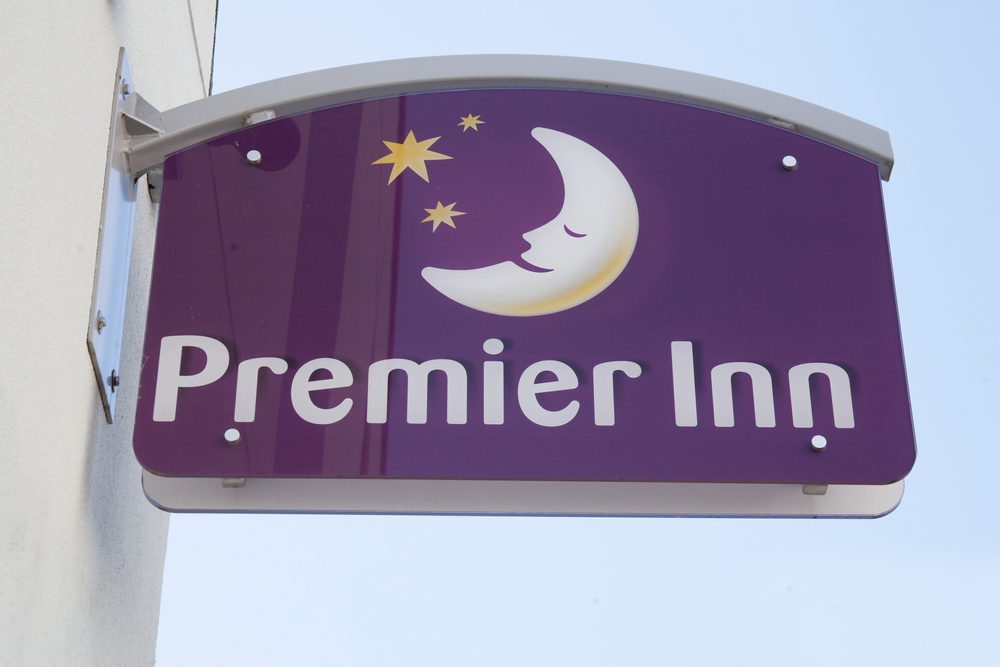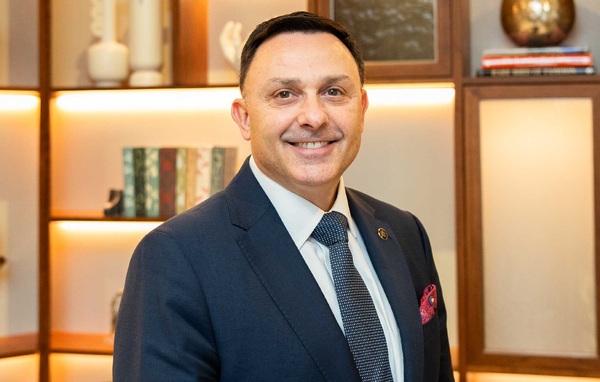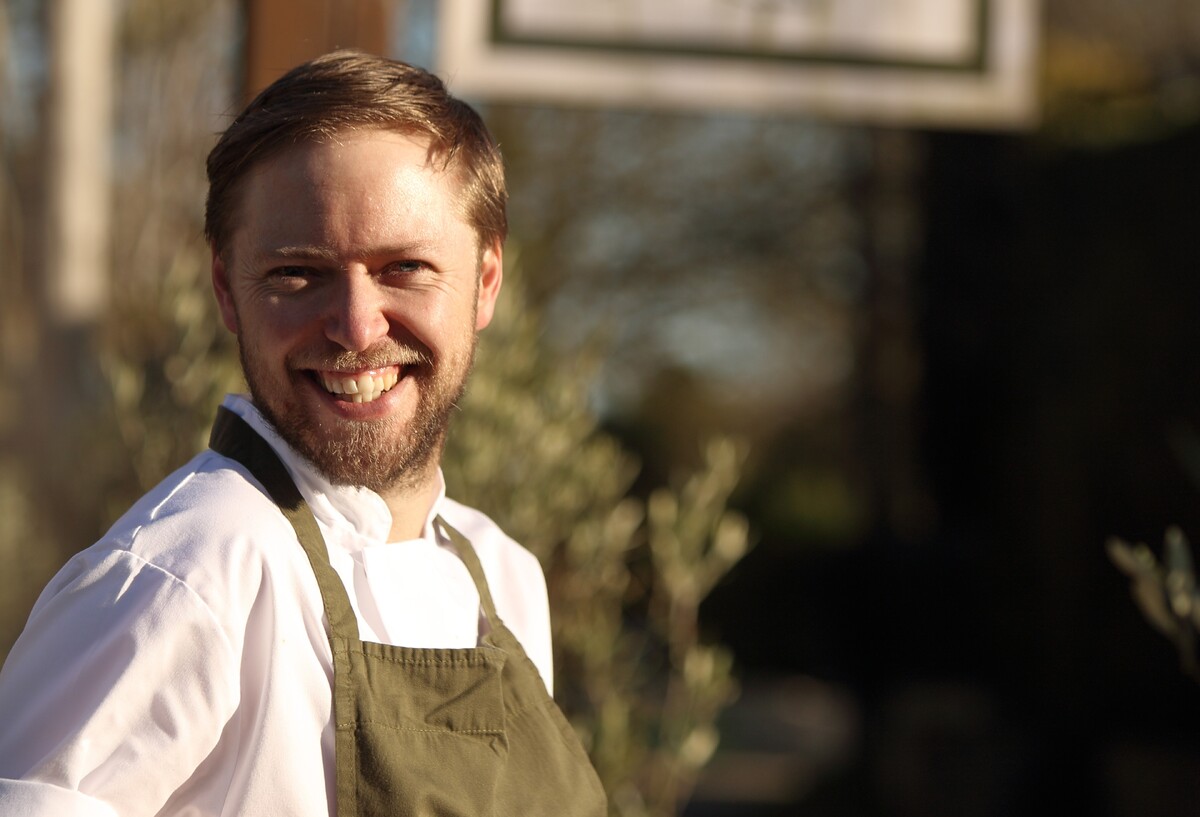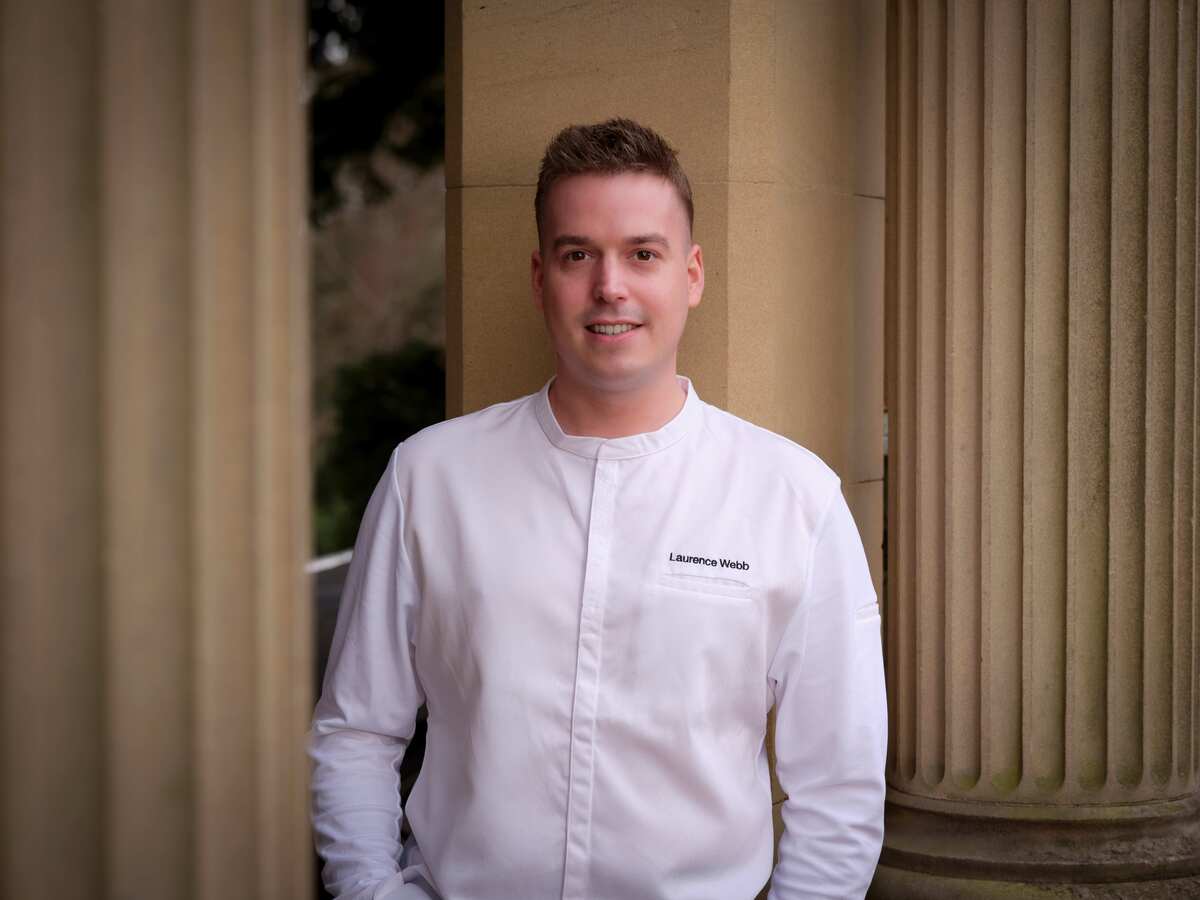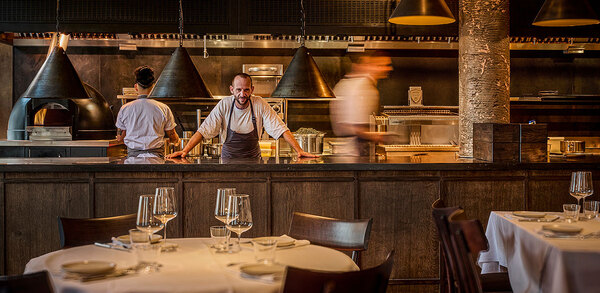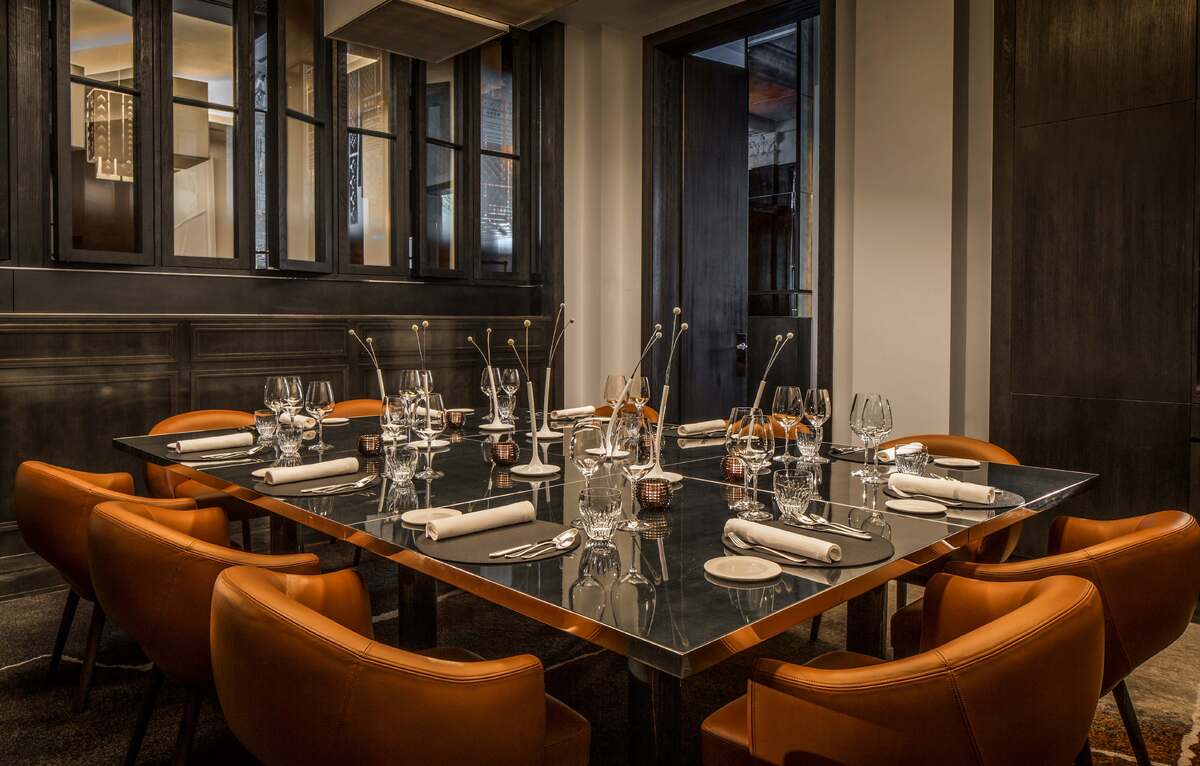Yes we Khan: How Asma Khan has brought the food of a Kolkata kitchen to Covent Garden at her revolutionary restaurant Darjeeling Express
Asma Khan is a trailblazer: she has staffed her restaurant Darjeeling Express with an all-female brigade of self-taught chefs, she's the founder of a charity for second daughters in India, an author and now star of Netflix documentary series Chef's Table. Katherine Price meets an operator with big ambitions
"I kLondonâs Kingly Court, just off Carnaby Street.
The 56-cover restaurant, her first, has been open just over a year, having evolved from supper clubs she hosted in her own home. The restaurant and Khan have been making headlines for multiple reasons: the all-female brigade, who have never previously worked in professional kitchens; Khanâs plans to launch a Second Daughters Fund to encourage the celebration of second daughters in India, who can be seen as a burden to their families (see panel); and that Khan will be the first British chef to be profiled on Netflix series Chefâs Table next year.
After working as a reporter for Sunday magazine in her native Kolkata in India, she moved to the UK in 1991 to join her husband, who was an economics professor at the University of Cambridge. She was always passionate about food and soon found that she was feeling homesick, pining for her family and the cuisine with which she was familiar. So, she spent her summers in India learning her familyâs recipes to bring them back to the UK.
âI knew I could do nothing about anything else â" the weather, the loneliness⦠but I could at least have the aromas from home in my kitchen,â she says.
Khan and her husband moved to London in 1996, where Khan did a law degree and a PhD in British constitutional law at Kingâs College. In 2012 at the age of 43, on the day she completed her studies, she registered the company name Darjeeling Express, after the steam train that runs between New Jalpaiguri and Darjeeling, where Khan and her family would spend their holidays. She started by hosting supper clubs at home.

The real game-changer was a supper club Khan hosted at Vivek Singhâs Cinnamon Club in Westminster. After that her supper clubs started selling out and her two sons started complaining that they were taking over the house. She was offered the opportunity to hold a nine-month residency at the Sun & 13 Cantons pub in Soho, where a four-star review from Evening Standard critic Fay Maschler quickly brought in the crowds.
When the residency was drawing to an end, Khan got chatting to a regular guest who suggested that she should open her own restaurant. The guest turned out to work for Shaftesbury, the landowner of 14.5 acres of real estate in Londonâs West End â" including Kingly Court.
âHe suggested I come here and have a look at this place, and I loved it, but I couldnât afford it â" then he told me there was no premium on the lease,â says Khan. âThat changed everything.â
âIt was really important to present the figures because the rent is based on a percentage of your turnover,â she explains. âAnd I couldnât, so I played on my strengths. I was able to tell them my story and the stories about the food they were eating. I knew Iâd got the space, but I had to wait several months.â
The next hurdle was arranging the funding: £150,000 to refurbish the site was secured through a loan from NatWest, and another £250,000 was due to come from a private Indian investor, £100,000 of which would go towards the rent deposit. However, the night before the deposit was due, the investor called. In exchange for his money, he wanted half of the company.
âI sat and I cried for two hours,â says Khan. She called all her friends, but after failing to secure the amount needed for the deposit, her husband surprised her by telling her to use the money from their childrenâs trust fund â" his entire lifeâs savings. ââTake it. Just donât lose it,â he said. I took the money and never asked him why he changed his mind,â says Khan.
She was able to take possession of the site and is proud that not only were they able to keep within budget, but they opened after two months and 10 days, within her three and a half month rent-free period.
âThis was a huge cushioning, when I had to start without working capital, otherwise it would have been impossible,â she says. âOtherwise itâs like sitting in a cab with two meters running: youâre paying rent and youâre paying your builders at the same time.â
Starting without working capital has meant strict budgeting, and Khan does all her own marketing and PR, but thankfully, business is good one and a half years in.
âWeâre doing really well so thereâs no stress. Weâre very comfortable, but we hold back on expenses that I could do myself.â
Tastes of home
The food served in the restaurant still involves the recipes Khan learned from her family and served at the supper clubs. Bestsellers include the Bengali-style goat kosha mangsho curry (âpeople will freak if we remove it from the menuâ), puris (fried bread), puchkas (wheat and semolina shells filled with spiced black chickpeas, potatoes and tamarind water) and prawn malaikari (spiced tiger prawns cooked in coconut milk).
For Khan, the restaurant (and her recently published book, Asmaâs Indian Kitchen, reviewed on page 38) is important in preserving the closely guarded recipes of Indiaâs royal courts. Recipes would have been passed down through the families that cooked for royality, an oral tradition that came to and end when the nation gained independence in 1947. Khan is trying to collect these recipes, which are seldom written down.
Khanâs all-female brigade consists of nine friends who used to help Khan with her supper clubs. Many of them previously worked as nannies â" none have been trained in professional kitchens.
âI like to be with people, especially with other women, because I grew up in a family dominated by women,â says Khan. âIâm not competitive with other women â" that doesnât mean Iâm not ambitious, but Iâve always been at the heart of organising things and getting groups of women together.â
She points out that many of the hospitality industryâs female success stories are about individuals â" she would like to see more groups of women succeeding together.
Every member of the kitchen team is paid the London Living Wage (£10.20 per hour), from the kitchen porter to Khan herself. This is partly out of necessity â" having started with no working capital, Khan cannot afford to pay herself much â" but also to encourage a sense of democracy in the kitchen, where there are no titles or demarcated sections.
âIt may not work for everybody, but it helps all of us,â says Khan. âThe women are used to working in home kitchens, which are this small. You can see whatâs happening, so there are no counters or sections. Clearly there is one person who is in charge, but this is very informal.â
The Netflix effect
The announcement of Khanâs involvement with Chefâs Table has been an unexpected bonus for business. Khan has seen at least a 30% increase in spend, and while a normal Monday lunchtime would involve 8-12 covers, recently they have been serving as many as 60.
For Khan it came as a complete surprise; when she got the email she thought it was a scam. She was then worried that people would say âthey could have done betterâ or âgone with someone Britishâ â" but she says everyone has been âso kindâ. Netflix has described its sixth season as exploring the theme of âthe journey homeâ through food, and Khan explains she feels a strong connection with the subject.
âFor us immigrants, food is our way home,â she says, emphasising the importance of making her diners feel like they are in her home.
She wants the episode to be a thank you to London, âfor embracing me as an immigrant, giving me the soil on which I have been able to growâ.
However the industryâs attitude towards other cultures came into question earlier this year when chef Shaun Beagley was fired from Thai restaurant Som Saa after his social media posts under the username âBoring Thaiâ provoked accusations of racism.
âYou think the industry has moved on, then you see the review from a food critic like Giles Coren [referring to Corenâs review of Kaki restaurant in The Times in September]⦠If you need to explain the joke to someone, itâs not funny.â
She says itâs taking too long for the industry to talk about things like racism and misogyny and to respect the cultures whose food they are cooking: âIt is very important to get respect in the workplace and Iâm absolutely convinced that it would result in less turnover of staff, better quality food and happier people,â she says.
She urges operators to make hospitality a more open, welcoming environment. âThis is not a competition one person wins,â she stresses.
For Khan, being a second daughter in India automatically placed her on an unequal playing field. âIt was as if I didnât count. And I so desperately wanted to count. I wanted to make a big difference and create such a big ripple that I could change things. I think this restaurant is finally the change happening.â
Many of her team are second daughters, too. âAll these women who felt like they didnât count⦠the food will be magical because they feel honoured and respected.â
For now, she has no plans for more restaurants. She operated a pop-up stand, Calcutta Canteen, at Market Halls in Fulham between May and August, but decided it was too far away from the original restaurant and that she doesnât want to split up the team on a permanent basis. Instead, she is in discussions with Shaftesbury to open a pop-up tea shop off Carnaby Street during the winter months.
A legacy of fairness and equality is the main priority. Her restaurantâs success makes her feel like she has already achieved something for the entire team: âLives will be changed by having the opportunity to work in a kitchen, to be respected and honoured and earn good money and know this is how youâre meant to be treated.â
Timeline
September 2018 It is revealed that Asma Khan will be the first British chef profiled on Netflix series Chefâs Table
June 2017 Darjeeling Express restaurant opens at Kingly Court
2015: Darjeeling Express takes up a nine-month residency at the Sun & 13 Cantons pub in Soho
2013 Khan holds a biryani supper club at Vivek Singhâs Michelin-starred Cinnamon Club in Westminster
2012 She completes her PhD in British constitutional law at Kingâs College London and registers Darjeeling Express. She holds her first public dinner at the Goethe-Institut UK in South Kensington
1991 Khan moves from Kolkata to Cambridge
The Second Daughters Fund
Khan is in the process of setting up the Second Daughters Fund to send celebration packages to families on the birth of their second daughters. In some parts of India daughters are seen as a burden, as their families are expected to pay dowries to the groomâs family when they get married.
The majority of an initial £5,000 was donated by Ben Adler, the husband of Pat Llewellyn, the producer credited with discovering Jamie Oliver. Khan cooked for the couple in their home prior to Llewellynâs death.
Viewpoint: Sacked Som Saa chef has exposed the casual racism that is rife in hospitality >>



